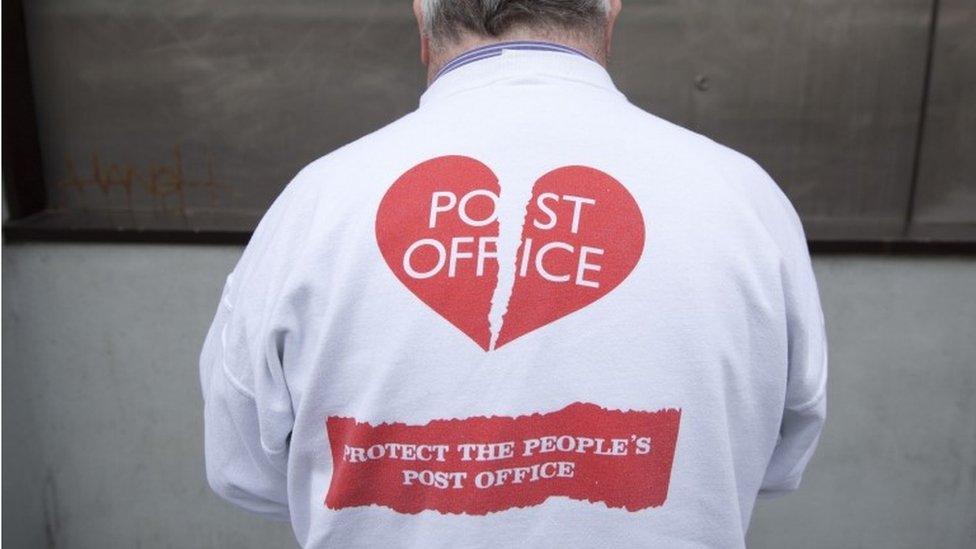Are we facing a Christmas of Discontent?
- Published
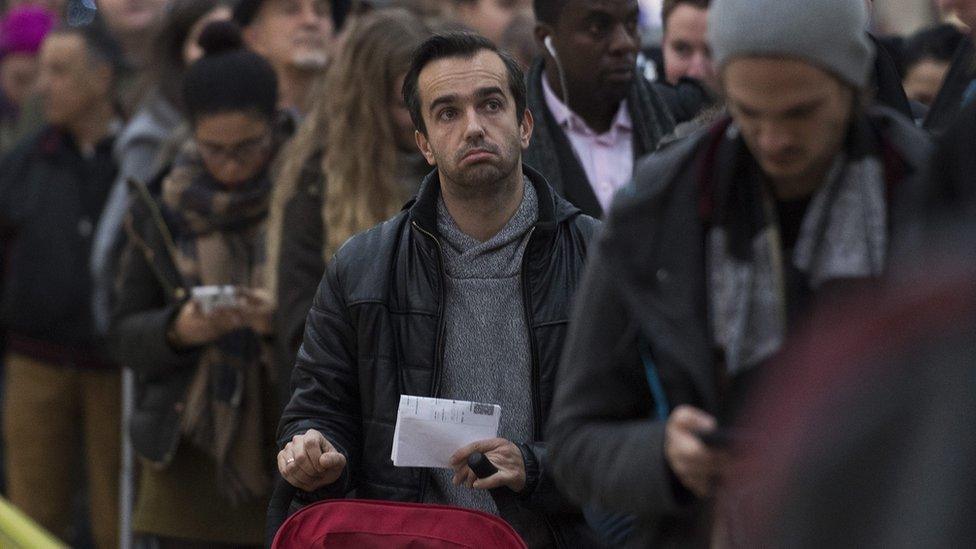
Southern rail commuters are facing yet more disruption in the run-up to Christmas
With commuters on Southern rail services facing yet another day of strikes, and Crown Post Office workers pushing ahead with walkouts, are we facing a Christmas of Discontent?
About 1,500 check-in staff, baggage handlers and cargo crew at a number of UK airports have also called a 48-hour strike from 23 December in a pay row.
In addition, some cabin crew at British Airways have called walkouts, while Argos delivery drivers this week suspended a strike at the eleventh hour.
The unrest is all the more unusual because for the last 30 years strikes have been falling to record low levels in the UK.
"We've not seen much strike action really since the mid-1980s," says Dr Alf Crossman, an industrial relations specialist at the University of Sussex.
"Back then it was the great British disease. It was like the weather - something you put up with."
The number and size of walkouts has dropped sharply since the days of the Miners' Strike in 1984-85 and the Winter of Discontent in the late 1970s.
In comparison, last year the number of working days lost through strikes - 170,000 - was the second lowest on record.
"The level of action now pales into insignificance compared to the Winter of Discontent in 1978-79," says Prof Gregor Gall from the University of Bradford.
Then, a wave of crippling strikes spread across the country, leading ultimately to the collapse of the Labour government and the election of Margaret Thatcher.
"It's so difficult to draw real comparisons because so much has changed," agrees Dr Crossman.
Before the Thatcher administration, trade unions were more powerful, while the railways, British Airways and Royal Mail were all state-owned.
"We would not be talking about a Southern rail strike, it would be a nationwide rail strike," says Dr Crossman.

London's Leicester Square filled up with rubbish as waste collectors went on strike during the Winter of Discontent
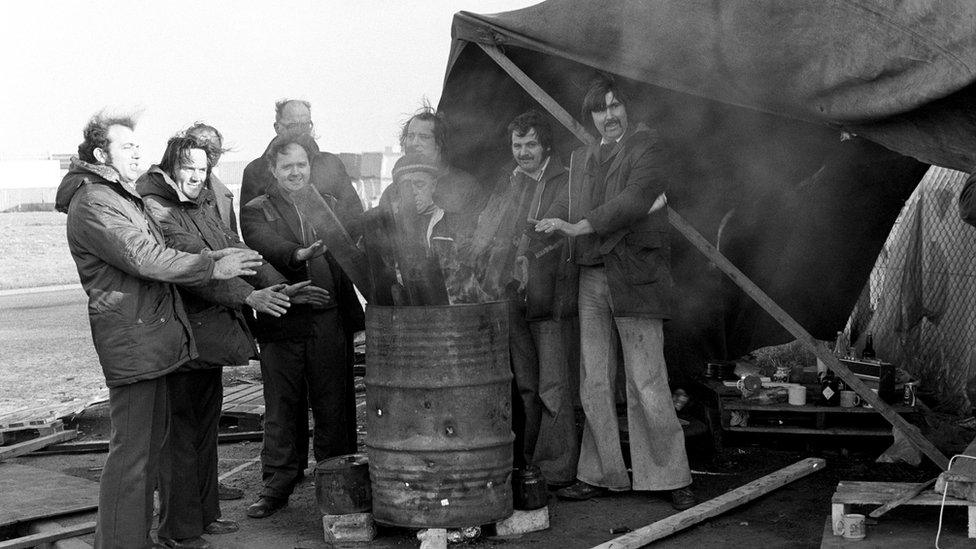
Dock workers also joined in the pickets in 1978-79 when it was easier for unions to organise strikes
But there are also some parallels, experts say, such as stagnant wages for some workers, inflation edging back up, and the first fully Conservative government in almost 20 years.
"It feels like there's an undercurrent of discontent building," says Andy Cook, chief executive of Marshall-James, which advises firms on industrial relations.
"People are feeling the pinch," he says. "Average workers feel they're not being paid in line with profits and therefore are more willing to stand up."

The pre-Christmas 2016 strikes
Southern rail
When? Friday 16 December, Monday 19 December to Tuesday 20 December
Why? Unions say the dispute is about safety, but Southern and the government say it is political
Post Office
When? Crown Post Office workers on Monday 19 December, Tuesday 20 December, and Saturday 24 December. Delivery drivers to rural Post Offices on Thursday 22 December and Friday 23 December
Why? Jobs, pensions and branch closures at Crown Post Offices - the larger branches usually located on High Streets
British Airways
When? Sunday 25 December to Monday 26 December
Why? Pay for about 4,000 staff who joined after 2010 on "Mixed Fleet" contracts
UK airport staff
When? Friday 23 December to Saturday 24 December
Why? A longstanding pay dispute - the Unite union says wages have not kept up with inflation

Trade unions are at pains to point out that all of these strikes are separate.
"The causes of recent strikes differ from strike to strike, ranging from safety on the railways to closures of post offices. Each dispute is specific to that workplace," says Frances O'Grady, general secretary of the TUC trade union body.
"Going on strike is always a last resort, especially for the hardworking staff who take pride in their work, and will lose pay while on strike," she adds.
Of the four strikes, only the British Airways one and the airport workers one are explicitly about pay.
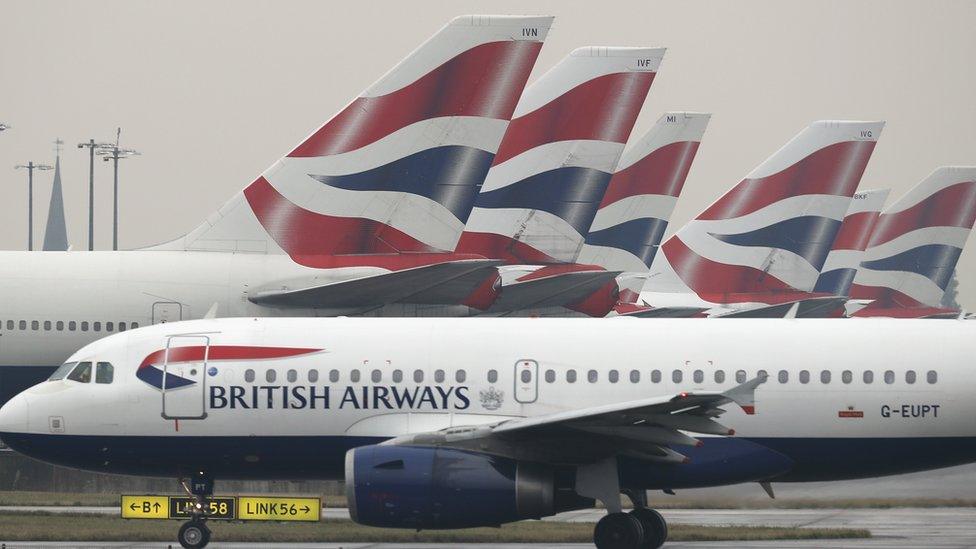
The British Airways dispute concerns staff who have joined the airline since 2010
Still, the level of industrial unrest is on the rise. The number of working days lost to strikes in the first 10 months of 2016 has already passed last year's total, largely because of the junior doctors' strike in April and the teachers' strike in July.
The unions do seem to be "flexing their muscles", Dr Crossman says.
In the background, there's also the Labour Party's closer relationship with trade unions under Jeremy Corbyn, and the implications of Unite general secretary Len McCluskey standing for re-election.
Companies are also less experienced at handling strikes, says Dr Crossman. "In 30 years of relative industrial peace, management have forgotten how to deal with industrial relations."
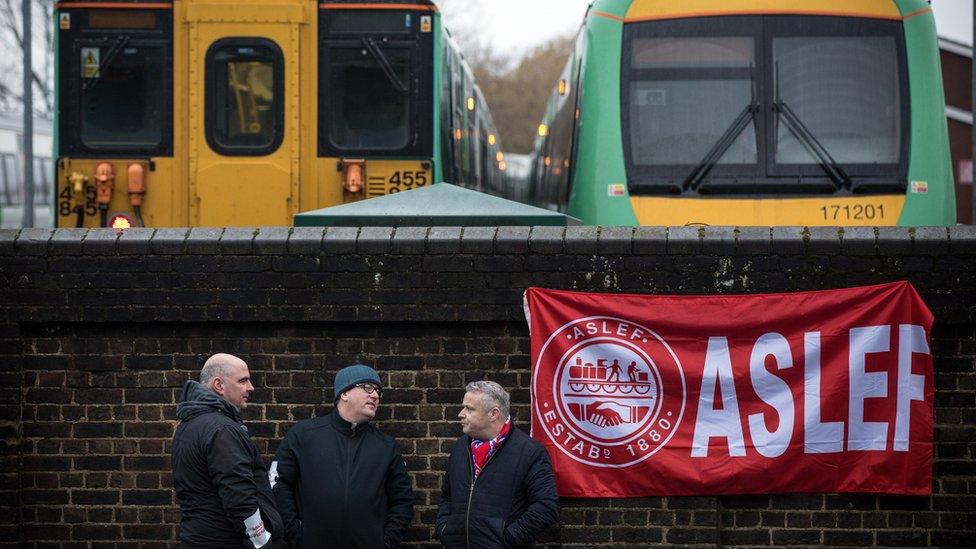
Two trade unions - Aslef and the RMT - have joined forces in the Southern rail strike
When it comes to Christmas walkouts, unions have to weigh the risk of negative publicity against the stronger bargaining position, particularly in sectors like travel and mail delivery where people rely on them more than usual.
With the Argos delivery drivers, the threat of strikes helped secure a pay deal - an example of the leverage trade unions can hold in the festive period.
"Would it have got traction if it was in August? Probably not," says Mr Cook.
At least the possible disruption to mail deliveries, and yet more delays for commuters on Southern, is due to industrial tensions and not the weather.
The unrest during the Winter of Discontent was exacerbated by blizzards and deep snow.
And with weather forecasts this year looking milder, that seems a more remote prospect for the Christmas of Discontent.
- Published16 December 2016
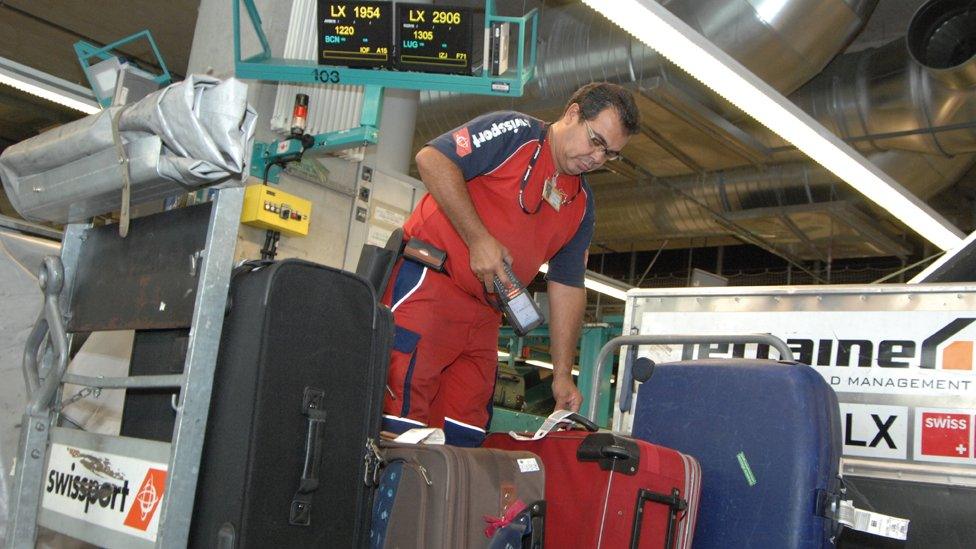
- Published16 December 2016
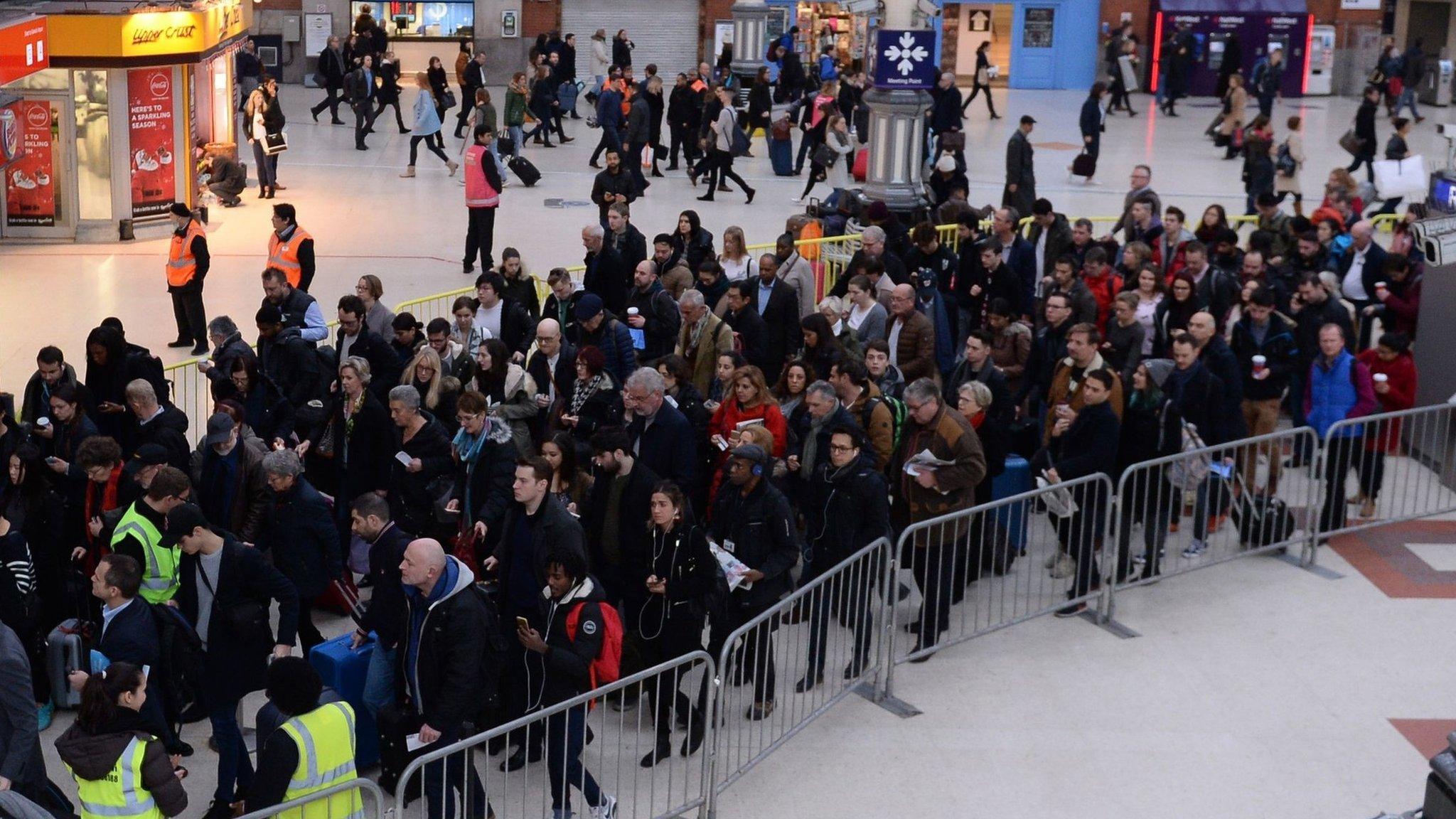
- Published13 December 2016
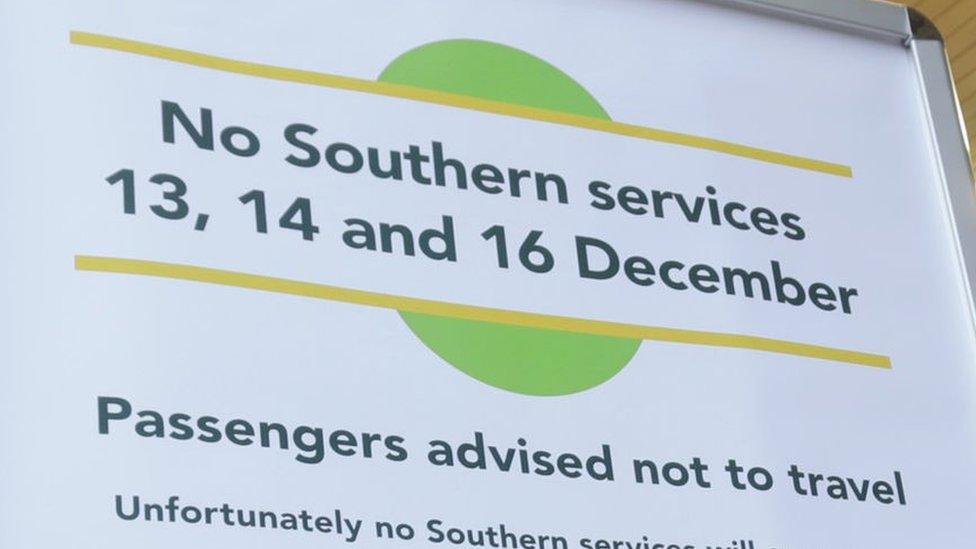
- Published14 December 2016
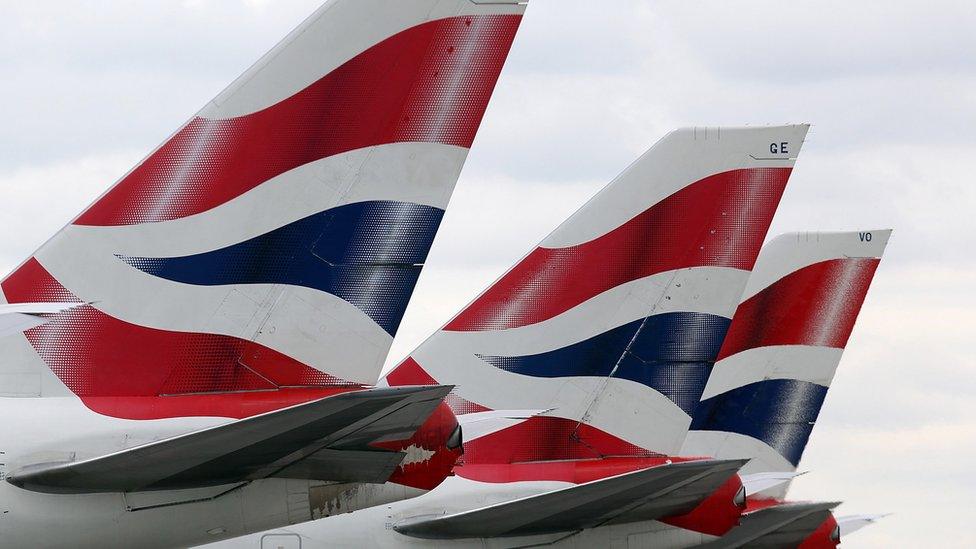
- Published14 December 2016

- Published13 December 2016
